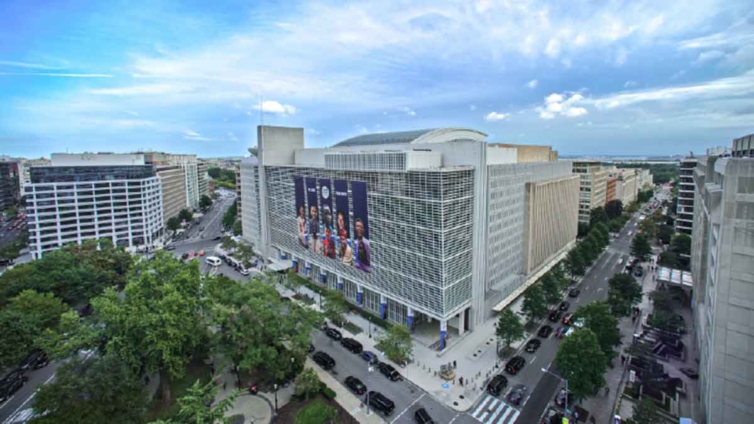
Audio By Carbonatix
Sub-Saharan Africa is set to emerge from the 2020 recession sparked by the COVID-19 pandemic with growth expected to expand by 3.3% in 2021.
This is 1% higher than the April 2021 forecast according to the latest edition of Africa’s Pulse.
This rebound is currently fueled by elevated commodity prices, a relaxation of stringent pandemic measures, and recovery in global trade, but remains vulnerable given the low rates of vaccination on the continent, protracted economic damage, and a slow pace of recovery.
According to analysis in the Pulse, the World Bank’s twice-yearly economic update for the region, growth for 2022 and 2023 will also remain just below 4 percent, continuing to lag the recovery in advanced economies and emerging markets, and reflecting subdued investment in SSA.
“Fair and broad access to effective and safe COVID 19 vaccines is key to saving lives and strengthening Africa’s economic recovery. Faster vaccine deployment would accelerate the region’s growth to 5.1 percent in 2022 and 5.4 percent in 2023—as more containment measures are lifted, boosting consumption and investment,” said Albert Zeufack, Chief Economist for Africa at the World Bank.
The analysis shows that current speeds of economic recovery in the region are varied, with the three largest economies, Angola, Nigeria, and South Africa, expected to grow by 0.4%, 2.4%, 4.6% respectively. Excluding South Africa and Nigeria, the rest of SSA is rebounding faster at a growth rate of 3.6% in 2021, with non-resource-rich countries like Côte d’Ivoire and Kenya expected to recover strongly at 6.2% and 5.0%, respectively.
A positive trend, according to the report authors, is that African countries have seized the opportunity of the crisis to foster structural and macroeconomic reforms. Several countries have embarked on difficult but necessary structural reforms, such as the unification of exchange rates in Sudan, fuel subsidy reform in Nigeria, and the opening of the telecommunications sector to the private sector in Ethiopia.
Additionally, thanks to prudent monetary and fiscal policies, the region’s fiscal deficit, at 5.4% of Gross Domestic Product in 2021, is expected to narrow to 4.5% of GDP in 2022 and 3% of GDP in 2023. However fiscal discipline, combined with limited fiscal space, has prevented African countries from injecting the level of resources required to launch a vigorous policy response to COVID-19.
Apart from mounting fiscal pressures and rising debt levels as they implement measures for a sustainable and inclusive economic recovery, Sub-Saharan African countries are also faced with worsening impacts of climate change.
The Pulse therefore authors advise that just as the countries have used the crisis to introduce reform measures, they should also harness this opportunity to make sustainable, resilient transitions toward low-carbon economies that can provide long-term benefits in the form of reduced environmental hazards as well as new economic development openings.
The reports highlights Africa’s unique context of low baseline development, preexisting climate vulnerabilities, limited energy access, and high reliance on climate-sensitive sectors— as posing challenges but also providing opportunities to transform the economy and create jobs. Private firms and governments in Africa are providing training for jobs in solar energy (Togo and South Africa).
Investments in climate-smart infrastructure can help cities create jobs. Decarbonization is an opportunity to foster manufacturing activity in the region, including the production of components of the Internet of Things, value-addition to minerals that will power the green economy, and insertion into regional value chains.
Latest Stories
-
‘Adom FM’s Strictly Highlife’ lights up La Palm with a night of rhythm and nostalgia
35 seconds -
Ghana is rising again – Mahama declares
5 hours -
Firefighters subdue blaze at Accra’s Tudu, officials warn of busy fire season ahead
5 hours -
New Year’s Luv FM Family Party in the park ends in grand style at Rattray park
5 hours -
Mahama targets digital schools, universal healthcare, and food self-sufficiency in 2026
5 hours -
Ghana’s global image boosted by our world-acclaimed reset agenda – Mahama
6 hours -
Full text: Mahama’s New Year message to the nation
6 hours -
The foundation is laid; now we accelerate and expand in 2026 – Mahama
6 hours -
There is no NPP, CPP nor NDC Ghana, only one Ghana – Mahama
6 hours -
Eduwatch praises education financing gains but warns delays, teacher gaps could derail reforms
6 hours -
Kusaal Wikimedians take local language online in 14-day digital campaign
7 hours -
Stop interfering in each other’s roles – Bole-Bamboi MP appeals to traditional rulers for peace
7 hours -
Playback: President Mahama addresses the nation in New Year message
8 hours -
Industrial and Commercial Workers’ Union call for strong work ethics, economic participation in 2026 new year message
10 hours -
Crossover Joy: Churches in Ghana welcome 2026 with fire and faith
10 hours

